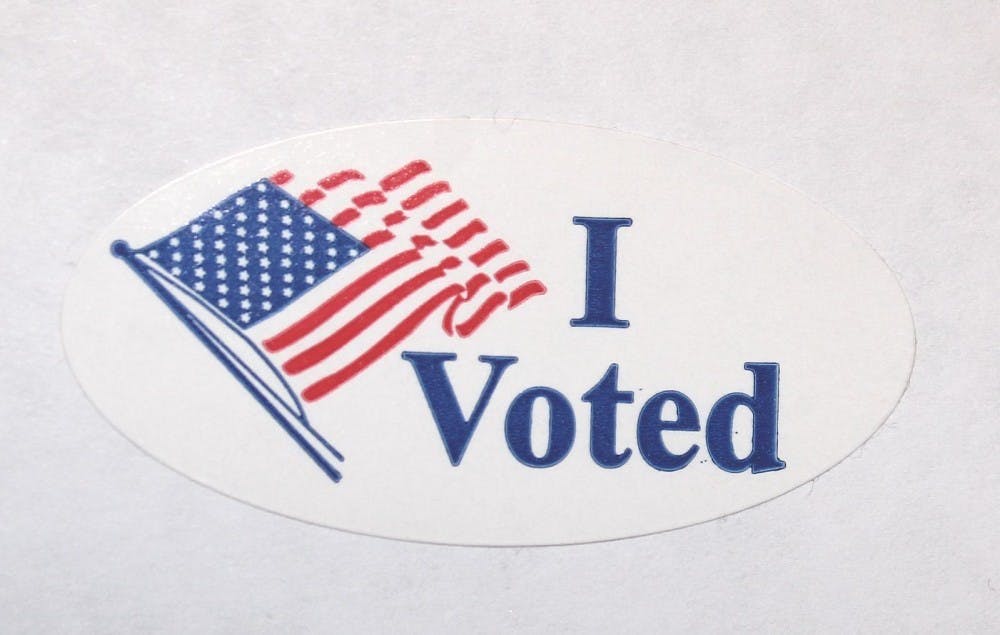Virginia will cast its ballots March 3 for the several Democratic candidates seeking the presidential nomination and the Commonwealth will vote again for the candidates running for congressional nominations June 9. The approaching Democratic primaries, especially here in the fifth congressional district, could not be more important for voters, specifically student voters like all of us at the University. Voting for candidates we believe in and that we hope will secure the nomination is important and at the forefront of our minds when entering the voting booth. But a primary vote, with this year being no exception, is much more than just voting for one’s preferred candidate. A primary vote sends a message to the eventual candidate, the party and the entire nation. When that primary vote comes from a student, it means even more and challenges conventional American politics. Regardless of who wins the Democratic nomination, a strong youth turnout at the polls will impact the rest of the election cycle.
In 2016, Bernie Sanders, I-Vt., did not win the Democratic nomination, but his run still had profound effects on the party and the Democratic platform. His run forced the Democratic Party and nominee Hillary Clinton to embrace more progressive ideals. Sanders did not create this change alone — he was fueled by the millions of voters that cast their ballots for him. Out of those voters, it was the youth vote that really stood out. Sanders garnered 71 percent of voters under the age of 30 — a bigger majority than any other age group for either candidate besides the 65+ age group.
While the youth vote had a huge impact, it could have been even bigger. Only one-third of registered voters ages 18-24 voted in the 2016 primary cycle, and only 50 percent of registered voters ages 18-29 voted in the general election. These numbers may be higher than previous years, but they are still low. If the youth turnout followed these trends, but had a 20 percent higher turnout rate in either the primary or the general election, electoral politics in the United States may look very different now. The youth vote — which is largely made up of college students — could be one of the main driving forces for change this election cycle if we all show up to vote.
If you are a college student that wants medicare-for-all or actual moves towards tackling the issue of climate, then voting in the presidential primary is crucial. The party is at a crossroads right now — members are either embracing the progressive wing of the party or sticking to a more moderate path forward. The deciding factor in this decision may very well be the youth vote, making college campuses like U.Va. the battleground of the future of the party and nation. The voice of students will help decide who the next nominee is, and it will most definitely impact the party platform for 2020.
Making sure to vote in the Presidential primary is crucial. In June, Charlottesville has another big day at the poll — the congressional primary. In the fifth congressional district, the seat has been historically safe for Republicans. But over the past few election cycles, the Democratic candidates have begun to close the gap. The last election in 2018 saw Rep. Riggleman, R-Va., defeat Leslie Cockburn by less than 7 percent, which was much closer than any recent race in the district. If students become more involved with local elections such as the fifth district, this will also have a profound impact on regional politics rather than just nationwide elections. There are currently six candidates in the race. All University students should take the time to learn about the candidates and decide which one represents them best. A candidate that has the backing of students already has an advantage if they are able to motivate University students to show up at the polls.
This is going to be a consequential year. The Democratic Party will have a nominee and hopefully that nominee will go on to defeat President Donald Trump in the general election. The only way we can ensure this change is if we, the youth voters and college students of America, all vote during this primary cycle and in November. Vote in the Virginia presidential primary March 3. Vote in the Virginia congressional primary June 9. And vote in the general election on November 3. Buckle up!
Hunter Hess is an Opinion Columnist for The Cavalier Daily. He can be reached at opinion@cavalierdaily.com.





